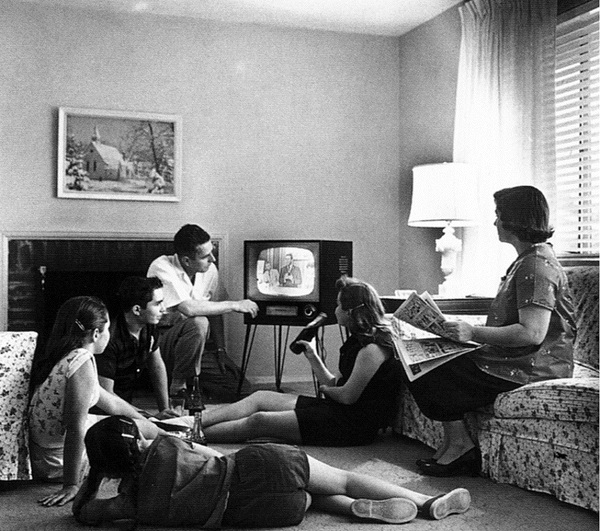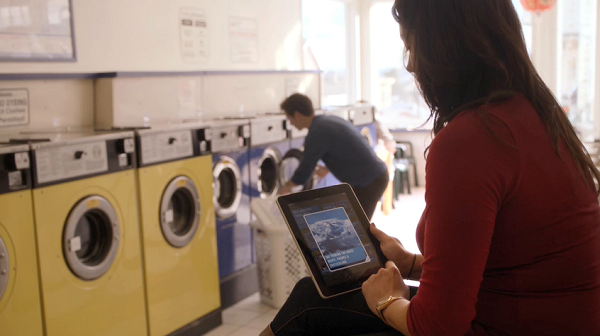The conversation about the shift from “old” to “new” media usually goes something like this: 1) the media business has fundamentally changed; 2) media companies need to think in new ways due to the problems of fragmentation, the attention economy and a whole range of platforms; 3) those that adapt to the new will win; those that won’t, will fold – and they deserve it too.
So the advice from new media gurus is always the same: existing media companies – and indeed, even new media companies like Netflix – need to find a way to replicate their success, albeit with a new business model. With a few mergers, acquisitions and consolidation, there’s no reason a smart media company who makes all the right moves couldn’t remain a multi-billion dollar business with a great deal of clout.
But what if that never happens? And what if, instead of it being due to a lack of vision or leadership, it’s because no media company can ever be a massive economic and cultural success again?
Is ‘Mass’ Media A Historical Anomaly?
The largest media companies on earth are big. Really big. Time Warner is worth $30 billion dollars, Viacom $20 billion. Meanwhile, companies like Sony and Apple, who are hybrid media and hardware companies, are worth even more (especially Apple obviously). Furthermore, a company like Comcast, who both produces and delivers content, is still worth over $100 billion dollars. These are the size of many small countries’ GDP’s.
But think about the core of what makes these companies so big. Television’s massive revenues stem from fact like this: the average American spends 34 hours a week watching TV. Most Americans had a choice of but one or two major newspapers. If you wanted to buy music in the past, most people focused on the four big labels.
But more to the point, this limit in the choice of available media had a monopoly on people’s time. If you had four hours in a day to entertain yourself, you had to mainly pick from these huge companies’ offerings.
Yet, there’s more than that, because after we got used to mass media like TV, radio, newspapers etc., media fit well into people’s lives. People worked 9 to 5 jobs and then, upon returning home tired to their suburban homes, did little else than consume media. Driving back into the city took an hour. And the suburbs were just huge stretches of houses – it’s not like you could pop down the street to watch a play or go to a coffee shop. There was symbiotic relationship between the structure of our lives and media. We toiled at this place called ‘work’ and then came home and experienced media.
So what if that basic structure changes?
A New Day? Or a New Kind of Day?
Instead of talking about fragmentation or the bottom falling out of the ad business, let’s think about this: how do people spend their days and how do they access media? Or more to the point, how will they do these things in 50 years?
Here’s one possibility: media will be everywhere at all times; and ‘work’ will be something that will take place in multiple places, and often in a different time frame than we know now – half days, three or four day weeks or work hours staggered through the day. What’s more, numerous forces will mean more and more people will live in cities.
So how will media change in such an environment? One way to think about things is to look at the bleeding edge now, by which I mean upper income people involved in the new media business. How do they spend their time? They travel a lot. They work at odd hours of the day. And they consume media constantly.
But the way in which they consume media is different: it’s quick; it’s often from sources of personal or social aggregation like Google Reader, Flipboard, Twitter or Reddit; and it’s done in a way to minimize the invasion of distraction like ads or paywalls.
Put very simply, if we take today’s early adopters as a sign of where things are headed, the structure of people’s lives has changed such that no one content creation OR distribution company takes up the bulk of a person’s day. Instead, time is spread very thin across a number of outlets of not only media, but other activity too. Work, social life, travel and family, now spread out over both space and time as more and more people live in cities, occupy more of a person’s day.
To wit: people’s lives are no longer organized in a way that will allow media to dominate someone’s days for hours. Media can no longer be as dominant because of the strange situation in which it is both everywhere and nowhere all at once.
What This Means For Media Co’s
Media companies might face an extraordinary situation: the creation of the best distribution tool in human history may spell trouble for the companies who provide the content that travels through that network.
And here’s the thing: it is not that media companies will ‘die’, whatever that silly phrase means. It’s that the size of media companies as we know them – which is to say, production companies, cable operators, movie studios – will shrink because their businesses have been built on monopolizing people’s time, and that can no longer hold true.
But it isn’t just that people have more choice in media. It’s the internet will also affect how people live and work because it disconnects the link between a place – ‘work’ or ‘home’ – and a particular activity. In doing so, it will be part of a series of changes that will prevent people from simply sitting in front of their TVs (or computers) for their media consumption needs.
What will it look like? In a day, a person might use a personalized news service, check a social network, watch a TV show – but never in the same place and from the same content company. And because more and more people will live in the city – where a multi-faceted day in which people move around, go out and are just ‘busy’ more often – less and less people could watch four hours of TV a day or spend 2 or 4 hours a week at the movie theatre.
And so for that reason and many more, big media companies will just have to accept that they will never be massive companies again.





An alternative: big media companies won’t be monoliths, and they can’t invest in only monolithic industries or run them in a monolithic way.
Apple, Google, and AOL are all giant companies, but they’re all key players in this new attention economy. Condé Nast is a pretty big company, but it also owns Reddit.
I like the history here, but genuinely big companies are very good at keeping themselves big. They’re also more often investment-and-management companies at the higher levels than genuine media companies.
Their strategies for investment and management have to change. But I think one version or another of the giant multinational company will be with us for a long time.
I like your article, but I think your historical analysis of big media doesn’t go back far enough. In the 1800’s, we had LOTS of choice in newspapers (remember media barons?) and the music industry sold sheet music. Before that, printers would make copies of anything brought to them, so self-publishing was the norm. If we go back even further, the Catholic church was the only game in town in terms of corporate media production and distribution. (Exceptions were traveling troubadours and village storytellers, but their reaches tended to be local.) Considering that lasted for centuries, it’s hardly a blip.